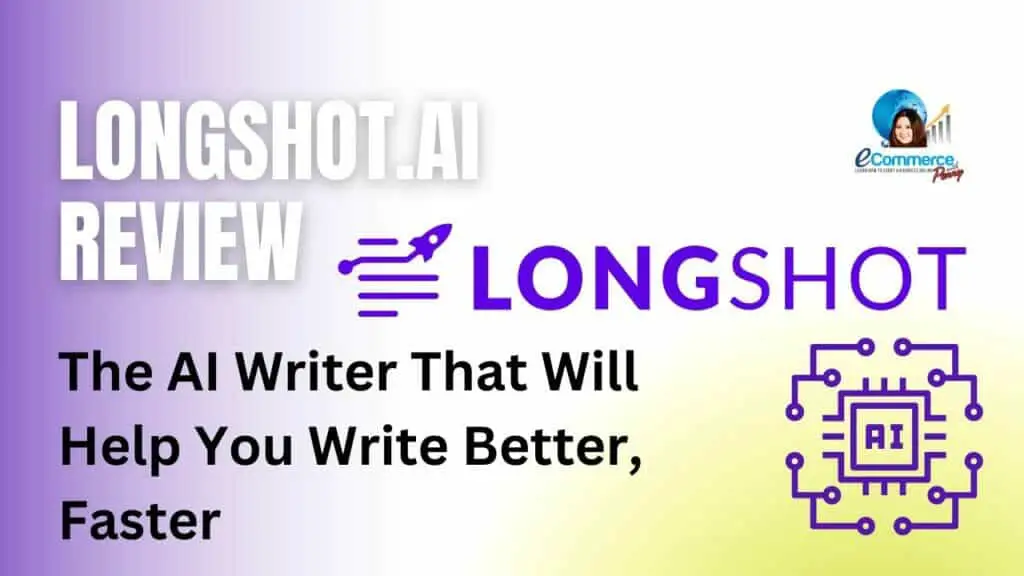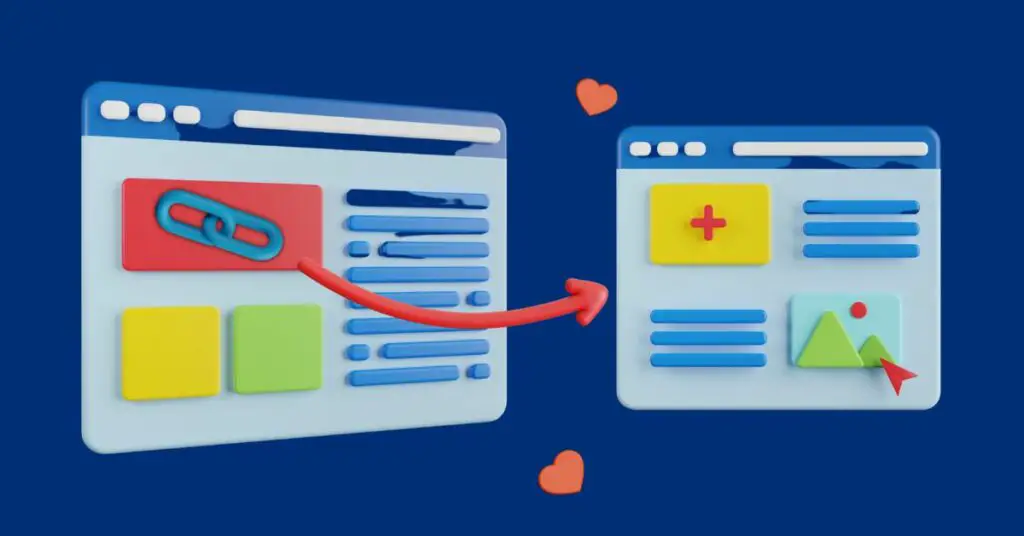AI Blogging: The Good, the Bad, the Limitations and Solutions
Artificial Intelligence (AI) has transformed the way we work, communicate, and even think. In the world of blogging, AI-powered tools promise to revolutionize content creation, optimization, and promotion. But like any new technology, AI also has its limitations and drawbacks.
In this blog post, we'll delve into the world of AI-powered blogging and explore the good, the bad, and the limitations you need to know. We'll also offer strategies for effective AI blogging.
DISCLOSURE: Some of the links that I share in this article ARE my affiliate links. This means I may earn a commission, at no extra cost to you. In fact, sometimes you'll get a discount or free credits just FOR using my link. 🙂
The Good Side of AI Blogging

AI-powered blogging has many advantages. For starters, it saves time. With AI writing tools, you can complete an article in a fraction of the time it would take if you were writing it from scratch.
By analyzing data from various sources, such as search engines, social media, and industry-specific sites, AI can provide writing suggestions, identify topics, and analyze sentiment.
Not only does AI speed up the content creation process, but it also improves the quality of your content and helps to optimize your writing. NLP can help you write well-researched and engaging content that resonates with your target audience.
Additionally, AI blogging can improve your SEO efforts by generating meta tags, optimizing images, and identifying potential keywords to target for better search engine rankings.
Another benefit of AI blogging is that it can help you with content ideation and overcome writer's block. AI-powered content analysis tools can give you insights into what topics are resonating with your target audience.
This helps you generate content ideas that are more likely to be successful. Additionally, AI-generated titles can be more appealing and attention-grabbing than human-generated titles. They can help lay out the structure of the article, allowing you to focus on your topic's content.
Read Related Post
The Bad Side of AI Blogging
While AI blogging has its advantages, it also has some drawbacks. One of the biggest concerns is that it lacks the human touch and may lead to generic and unremarkable content.
This could negatively impact reader engagement, and ultimately, your ability to build a loyal readership. Since AI generates content based on data and algorithms, it may lack the emotional intelligence and creativity that human writers bring to their work.
One major concern is the potential loss of creativity and voice. While AI can generate grammatically correct, SEO-optimized content, it may miss the mark in terms of style and tone. AI blogging platforms are not yet advanced enough to capture the unique voice and style of each blogger.
One of the biggest limitations of AI blogging is its inability to understand the context. While AI can analyze data and generate content, it can't truly understand the nuances of language and meaning. This means that AI-generated content may miss important context cues, and the result may be confusing or misleading.
Another limitation of AI blogging is that it may not be suitable for all types of content. AI-generated content may be perfect for data-driven pieces, but may not work well for content that requires a personal touch or storytelling. Ultimately, it's up to each blogger to decide if AI blogging is right for their specific needs and audience.
AI can certainly help you generate a lot of text, but that doesn't mean the content generated would be meaningful or with substance. It could be just repetition and regurgitation of what is already out there.
The Limitations of AI Blogging
Like all tools, you need to be aware of their limitations before you can use them correctly. AI writers should be seen as an additional tool in your blogging arsenal. They should not replace the human touch, but rather add to it.
Below is a screenshot taken from the ChatGPT dashboard which explicitly stated its limitations. These limitations apply to all AI writers in general. Therefore, it's important to remember that while AI writers can help create content for your blog, they do have limitations.

The first limitation it pointed out is “may occasionally generate incorrect information”. Google has called this a “hallucination” where AI can provide a convincing but completely made-up answer.
The risk of this is that it is not so obvious because the AI made it sound so convincing, you may not even know that the information it provided is not true.
The second limitation was “may occasionally produce harmful instructions or biased content“. For example, if you use AI to give you weight loss advice, it may give you a dangerous or unhealthy response, such as over-exercising or dieting.
Another example is if a user asks an AI for information about a certain group of people, the AI may not know what to give them based on the data it has been trained on.
Thus, if you were to use such information without realizing it, it could negatively affect the credibility of your blog. Again, the important thing here is you must have the domain knowledge to tell the difference between good and bad content.
This can also have serious implications and cause liabilities if the information is related to health advice or financial advice. So, it is best to stay away from giving such advice if you are using AI-generated content for your blog.
The third limitation shown was “limited knowledge of the world and events after 2021”. This is because ChatGPT is only knowledgeable about the data that was used to train it. Its knowledge is limited to what has been recorded and published up until the end of 2021, which was the cutoff date for its training data.
For this limitation, it may be different for different AI tools, depending on what AI language model it's using and what data was used in training that model. Therefore, it is important to remember that the AI's response to current events or recent developments may not be accurate or up-to-date.
In general, AI may not be able to capture the depth of knowledge and experience that human writers have. Another limitation of AI blogging is that it may not be suitable for all types of content.
AI-generated content may be perfect for data-driven pieces, but may not work well for content that requires a personal touch or storytelling. Certain topics, such as health, finance, and legal matters, require a high level of accuracy and precision that AI may not be able to provide.
One of the biggest limitations of AI blogging is its inability to understand the context. It has difficulty picking up on sarcasm, humor, and other nuances of language that make writing unique and interesting.
For instance, they may not be able to identify subtly different decision-making processes or writing styles, or grammar contexts. This means that AI-generated content may miss important context cues, and the result may be confusing or misleading.
Additionally, many AI writing tools work on common themes, which may not apply to every niche. Therefore, when using AI blogging tools, a blogger must be familiar with their tool's limitations to effectively write content that's still relevant and high quality.
Thus, when it comes to AI blogging, you can use it to supplement your content creation but shouldn't rely on it completely. To ensure high-quality content, you also need to combine it with human intelligence and creativity. Combining the two is the key to creating great content that resonates with your readers.
How to address the limitations of AI blogging?
Below are some suggested ways to address the various limitations of AI blogging:
To prevent Incorrect information
You can use AI as a tool to create information and content, but you should make sure that the information is correct. You should also check any claims. This is especially for anything involving history, events or places.
You can use Longshot.ai which has a fact-checking feature to help you with this task. It helps to speed up the fact-checking process by pulling in relevant information from various sources on the Internet.
Read Related Post
To prevent harmful instructions or biased content
Apart from verifying the information mentioned earlier, you can fact-check any information generated by AI by comparing it to other reliable sources. This can help ensure that the information provided is accurate and unbiased.
You should also evaluate the tone and language used in the ChatGPT-generated content to ensure that it is not harmful or biased. If you find any problematic language or tone, you can modify the content accordingly.
To prevent regurgitation of content
You should do a plagiarism check on any article generated with the help of AI writers and give proper citations and references. This will ensure that the article is not copied from any other source.
To address the problem of limited creativity
As a blogger, your unique voice and perspective are your greatest assets. Your readers come to your blog not just for the content but also for the unique voice that you bring to it. Embrace your unique voice and use AI to enhance it.
You should thus use AI as a tool to complement your writing process rather than rely on it to do all the heavy lifting. For example, you can use AI to generate ideas, research links, outline the content and identify errors and enhance your writing.
Focus on reviewing and editing the content generated by AI and bringing your creativity, personality, and unique voice to the final product. Only then can the content meet the standard of quality that your readers expect. This is essential to connect with your audience.
Another way is to write your blog post first, then use AI to optimize it for readability, SEO, and engagement. AI can help you identify the best headers, analyze the post's structure, and find relevant links. This way, you maintain the post's unique voice and ensure it meets your audience's expectations and goals.
To address the problem of limited context
You should use AI in conjunction with your knowledge and research to ensure that your content is properly targeted and contextualized. You should ensure that your content adds value by writing unique articles that are informative and resonate with your audience.
Finally, you can also use AI to proofread your work and double-check any fact-checking, avoiding potential mistakes and boosting the credibility of your content.
To address the problem of limited tone and style
To avoid this, you should use AI to refine your writing rather than replace it. This means using AI tools to help you improve grammar, structure, and readability while keeping your unique tone and style of writing.
To address the problem of limited emotional intelligence
To address this problem, you should use AI to analyze reader engagement and feedback to better understand your audience.
To address the problem of lack of personalization
You should aim to use a natural conversation style when writing your content. You should also use proper punctuation, avoid jargon, and use the reader's voice. By doing this, it will make your content and personalized recommendations stand out, creating loyal and engaged readers.
Read Related Post
Conclusion
AI-powered writing tools have revolutionized blogging, making it easier and faster to create content. However, you should be aware of the limitations of these tools to make better decisions for your blog content.
You should find a balance between using AI writings and your writing skills to create an engaging and SEO-optimized blog. Ultimately, AI-powered blogging tools should empower you and provide the means to enhance quality and efficiency, not detract from it.
So go ahead, and give AI-powered writing tools a try, but don't forget to put your writing skills to use too!











